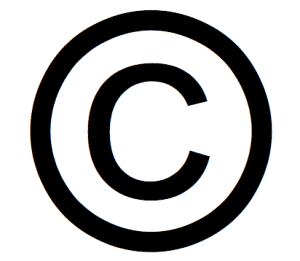W tym artykule dowiesz się:
ToggleOn actual copyrights in the virtual spaces of the Internet
 Copyright is a very broad subject. A lot has already been written about it, and certainly a lot more has been said. It seems, however, that it is still a problematic and complex issue, especially in the case where we refer it to the virtual spaces of the Internet which, in recent years, are intensively exploited. Recognising the need to systematise the contents in question, we decided to prepare a brief guide to copyrights on the Internet.
Copyright is a very broad subject. A lot has already been written about it, and certainly a lot more has been said. It seems, however, that it is still a problematic and complex issue, especially in the case where we refer it to the virtual spaces of the Internet which, in recent years, are intensively exploited. Recognising the need to systematise the contents in question, we decided to prepare a brief guide to copyrights on the Internet.
Firstly: we should be aware that contents are copyrighted also on the Internet
It should be made clear that in light of the normative regulations in force copyright covers all contents, regardless of the space where they are made public and regardless of the form, e.g. in a book, magazine or as part of architectural design. The immediate consequence of such regulations is the assumption that all kinds of works published online are also subject to legal protection. They can be both articles on websites, blog entries, as well as images and multimedia clips. It is important that this kind of work should be under the protection of the copyright law, because it gives the authors the possibility to enforce civil liability against persons who copy, share and or distribute the textual, graphic, video and other works without their consent, and who draw profits from these activities.
Secondly: we have the right to make use of the works published online for private use
One should be aware that downloading content that has already been made public on the Internet does not constitute copyright infringement unless the intention and the actual use will fit into the category of the
so-called personal use. It means that we can “download,” copy onto our carrier and even print a given text legally and free of charge if we do that for personal use. Downloading graphic, music, video files and other works published online (apart from licensed computer programmes) falls within the same category. It should be kept in mind, however, that reproduction of this kind of online works for commercial purposes and for the purpose of obtaining income therefrom is illegal. It is also unlawful to publically display movies that were published online without the proper authorisation license, except for research and teaching purposes.
Thirdly: we should remember to cite the source when using the available content
In light of the above information – which, by the way, probably confirms the previous feelings – it is possible to notice that copying a text that was posted on a certain webpage (even a small fragment of it) and pasting it into your own site constitutes a serious violation of copyright law. If, however, we decide that the literal quotation of a part of the work in the form of verbal, music, graphic or film content is an indispensable procedure in the context of the contents created by us, we can make use of the right to quote. But in order to take advantage of this right, it is necessary to fulfil several key conditions:
- the work within which we cite a fragment of another work (or a whole small work) is creative and furthermore it is a self-contained whole of an individual character,
- the quotation is, in this given and particular case, fully justified (e.g. serves the analytical or confrontational objectives for the work created by us, in which – for the purposes of analysis or polemics – we cite the fragments of another work),
- there is a clear and unambiguous separation of the cited content from the relevant section of the work with a reference to its author and an accurate, primary source.

